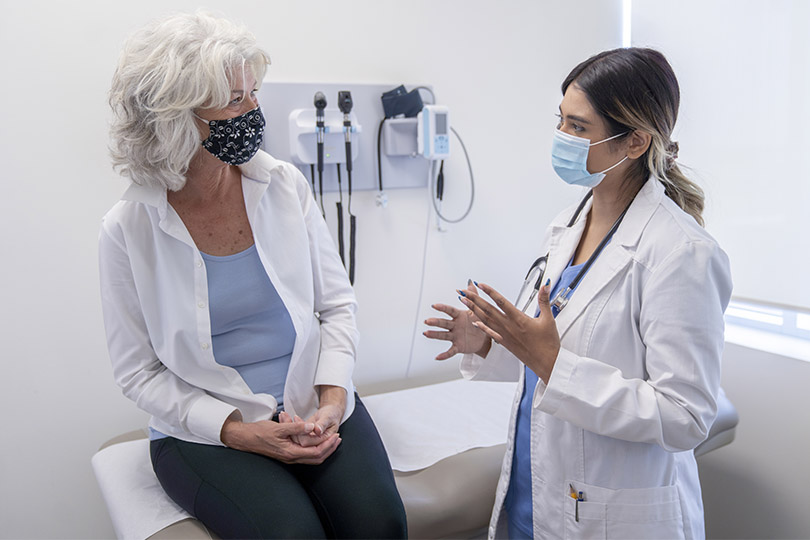What To Expect as a Kidney Donor
What To Expect During Live Donor Kidney Transplantation
It is important that you are prepared for a live donor kidney transplantation. Our specialists at Lahey Hospital & Medical Center are committed to helping you understand what to expect before, during and after this surgery.
Before surgery, you must stop smoking. If you drink alcohol, even in moderation, you have to avoid it until you have fully recovered from surgery and receive approval from your surgeon. You may also need to stop taking certain medications.
We usually schedule live donor surgery to take place in the morning. You and the kidney recipient are admitted into the hospital’s pre-op area two hours before surgery. Your family may accompany you. You get an IV, and your abdominal area may need to be shaved.
When you are taken into the operating room, your family waits in the surgical waiting area. The live kidney donor coordinator meets with them there and discusses a plan to keep them updated on the progress of your surgery.
Our anesthesiologists administer sedation through an IV to put you to sleep. Once you are asleep, the team inserts a tube in your throat that connects to a machine (ventilator) that helps you breathe. They also insert a tube (Foley catheter) into your urethra and into your bladder to allow urine to drain during the surgery.
We use a laparoscopic approach for donor nephrectomy to avoid the large incision associated with traditional, open surgery. A laparoscopy consists of three small incisions through which we insert a camera and other instruments to isolate the kidney. Once isolated and free, we can remove the kidney through a 3-inch incision.
Following kidney donation, your hospital stay is generally three days. You are allowed to get up and walk within 24 hours after the surgery. You cannot be discharged until you can take pain medication by mouth, urinate on your own and have completely recovered from the anesthesia. You also need to demonstrate acceptable kidney function and tolerate an oral diet.
Here is what you can generally expect during your recovery:
- In two to three days: You are discharged from the hospital.
- In 14 days: You can drive a car, after clearance from the transplant team.
- In six weeks: You can participate in low-impact sports, but you cannot swim or use hot tubs for eight weeks. You can lift up to 20 pounds.
- In six to 12 weeks: You may return to work and resume all of your normal activities.
Frequently Asked Questions
Live donor kidney transplantation is a procedure in which a living donor gives one of his or her kidneys to a person in need of a kidney transplant.
Candidates, or recipients, are those individuals with kidney disease who have been accepted and listed as appropriate deceased donor kidney transplant recipients (recipients of kidneys from deceased donors).
Living kidney donors must meet certain criteria, such as having a compatible blood type and being over the age of 18. They must also have no serious kidney problems or medical conditions such as diabetes, cancer or heart disease.
After initial screening blood work and urine are received and reviewed, and there are no contraindications to proceed with the evaluation, a potential donor is scheduled for a consult with the multidisciplinary (MDC) team. First, they will meet with an Independent Living Donor Advocate (ILDA). They will then meet with a transplant surgeon, transplant nephrologist, and the rest of the MDC team. The consult with the transplant surgeon involves a discussion of the procedure itself, as well as an opportunity for the donor to ask any questions. They will also have further bloodwork and testing including an abdominal CT, EKG, Chest X-ray, and a possible stress test. Additional appointments and testing may be required depending on age and medical history.
Simultaneously, two separate surgical teams perform the kidney donor and recipient surgeries. As one team works on preparing the recipient for the kidney, the other is working on removing one of the donor’s kidneys.
The hospital has an automated communication system that you can sign up for in the pre-op area. In addition, the live donor transplant coordinator will keep your family and support updated during the day of surgery.
The average donor will be in the hospital for 3 days.
There will be no changes to their diet, but they should drink at least two to three liters of water daily for the first month after surgery. They may resume sexual activities and are allowed to consume alcohol in moderation as soon as they receive clearance from their surgeon.
Organ Procurement and Transplantation Network (OPTN) requires donors to have follow-up appointments 2 weeks after surgery, then again at 6 months, 12 months, and 24 months. Lahey also recommends you get physical checkups every year after the 24-month follow-up appointment.

